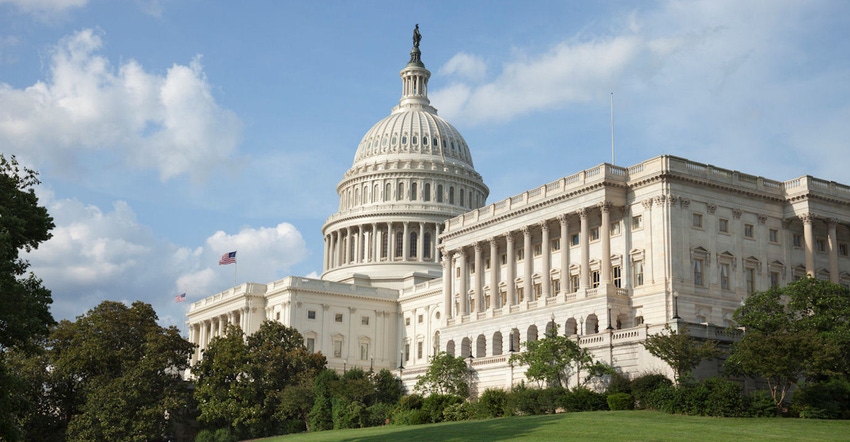Groups want appropriators to block ERS, NIFA move
Total of 60 organizations say no funding should be allowed beyond what was already allocated for local relocation of agencies.

The American Statistical Assn. (ASA) joined with 59 other organizations in sending a letter to the leaders of the House and Senate agricultural appropriations subcommittees requesting that they protect the Economic Research Service (ERS) and the National Institute of Food & Agriculture (NIFA) from relocation and realignment. The letter is the latest in a long list of activities by the U.S. Department of Agriculture stakeholder community expressing concern for and/or opposition to USDA's controversial plans for the two agencies announced in August.
“The USDA’s case for moving and realigning the Economic Research Service fails to justify the uprooting and disruption of such an important, effective and well-run agency,” ASA president Lisa LaVange said.
ASA executive director Ron Wasserstein added, “It’s hard to look at USDA’s rationale and not ask, ‘Where’s the beef?' The American public deserves a better understanding of the alleged problems being addressed and the ramifications of the ‘fix.’ As the number-three-ranked agricultural economics institution in the world, the Economic Research Service clearly ain’t broke.”
“For the sake of good government and transparency, Congress should put a stop to USDA’s plans until we know more,” LaVange said. "Federal statistical agencies are the bedrock of U.S. data infrastructure and evidence-based policy-making in the public and private sectors. With their unique and vital role of information decision-making so broad, Congress and the Administration should be strengthening these agencies.”
As an indication of the gravity of the situation, Katherine Wallman, former chief statistician of the U.S. who held the position for 24 years, has called USDA’s proposals for ERS “the biggest threat to a federal statistical agency in many years.”
Specifically, the 60 organizations request that agricultural appropriators "specify that no funding be used for relocation or realignment of ERS and that no funding be used for the NIFA relocation beyond that already provided for its relocation within the National Capital Region."
As stated in the letter, the signers’ “fundamental concern is that the proposed relocation and realignment will undermine the quality and breadth of the work these agencies support and perform – work that is vital to informing and supporting U.S. agriculture, food and rural economies.”
The letter noted that USDA’s decision to move forward with the relocation and realignment without stakeholder and congressional input and without a cost/benefit analysis raises “serious concern.”
The letter added, “We ask that you delay long-distance relocations of ERS and NIFA and the realignment of ERS at least until an independent and comprehensive cost/benefit analysis is completed and then a public hearing is conducted to hear from stakeholders. This delay is necessary in order for Congress and stakeholders to understand the problems USDA seeks to address and the ramifications of the USDA’s proposed moves. It would also be informative to study alternative solutions to the problems, once illuminated and better characterized.”
USDA's proposed moves have the potential to reverse the significant progress the subcommittees have made in recent years to start revitalizing agricultural research, education, extension and economics, the letter stated.
“The setbacks would be particularly acute if the USDA were allowed to proceed with its plan in [fiscal 2019] and no additional appropriations are provided for relocation. Based on the approximately $20 million provided for NIFA’s local move, relocating each agency outside of Washington, D.C., is likely to cost tens of millions of dollars, costs likely to have to come out of ERS and NIFA programs. We urge you to delay these ill-considered changes that could jeopardize and compromise your good work in recent appropriations bills,” the letter noted.
Groups signing the letter included the American Dairy Science Assn., American Society of Animal Science, Center for Rural Affairs, National Farmers Union, Global Harvest Initiative and World Perspectives Inc.
About the Author(s)
You May Also Like





